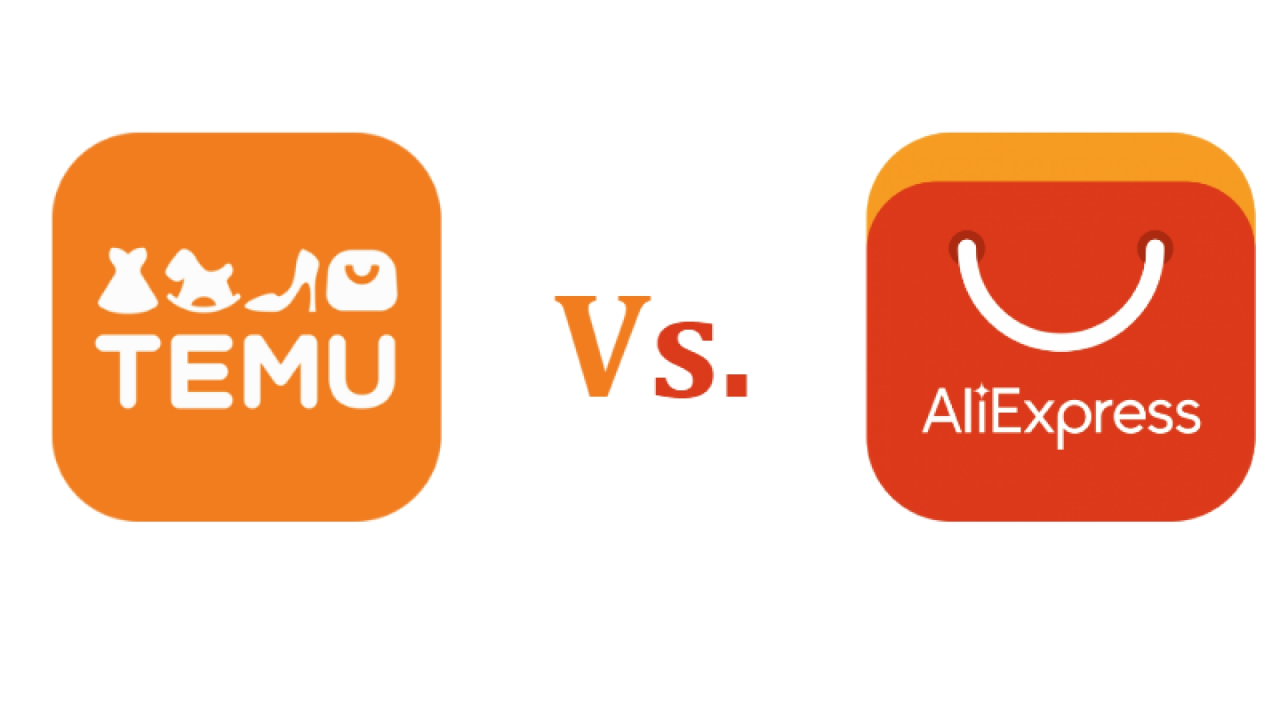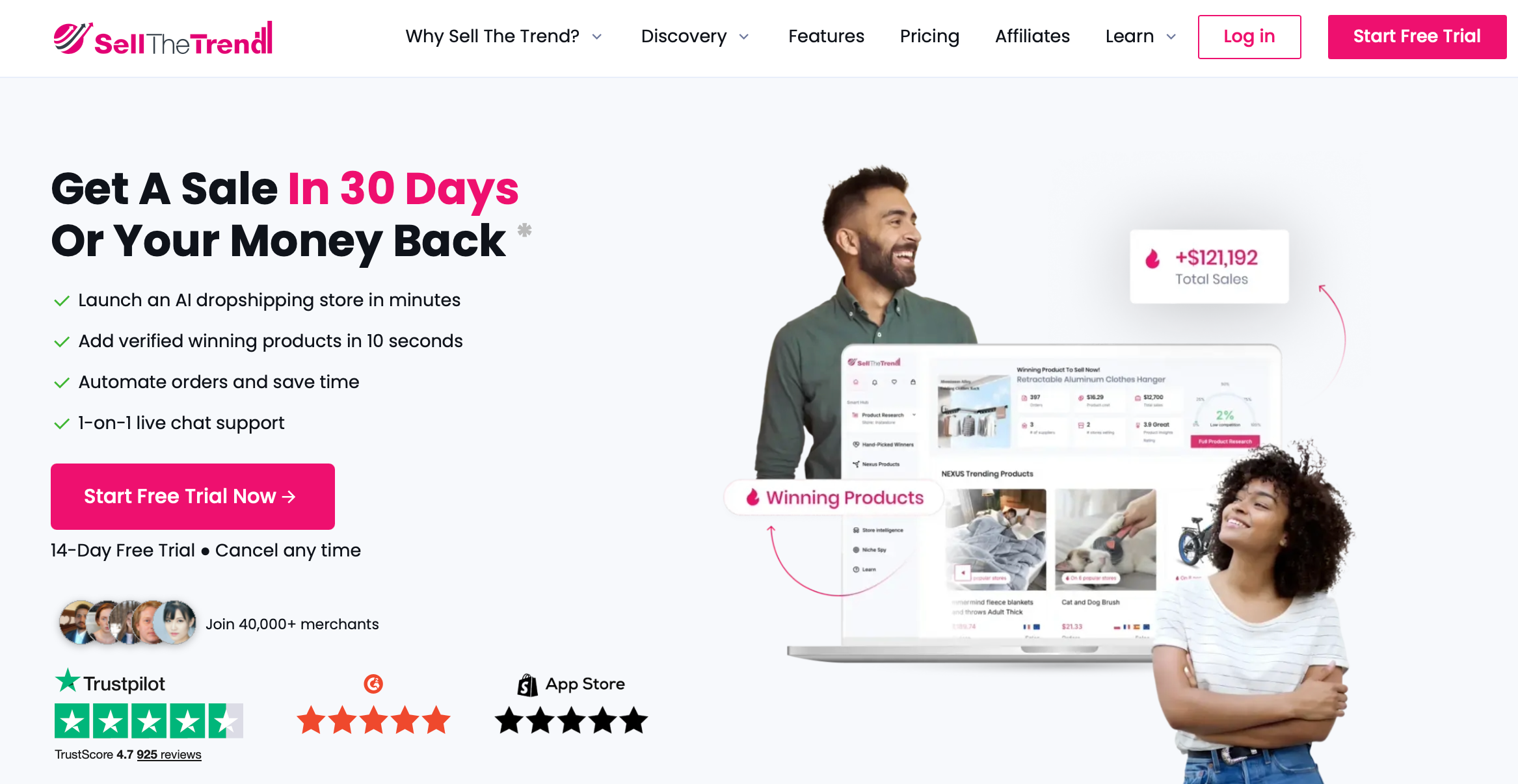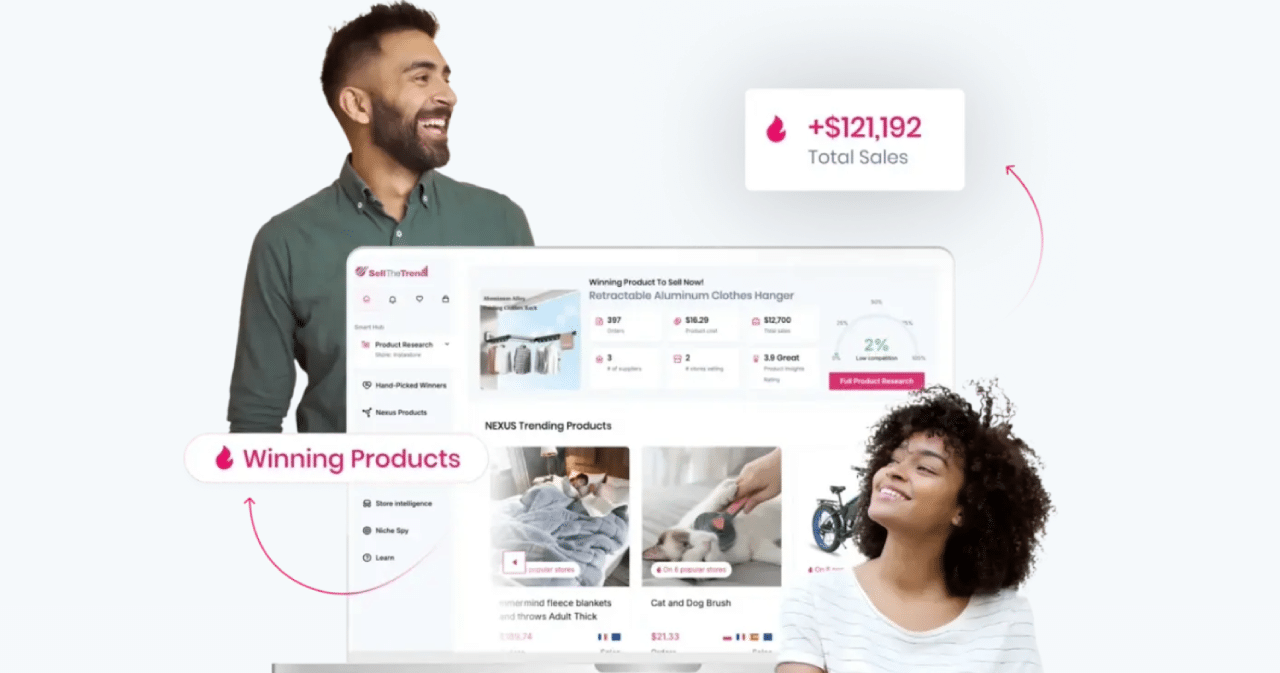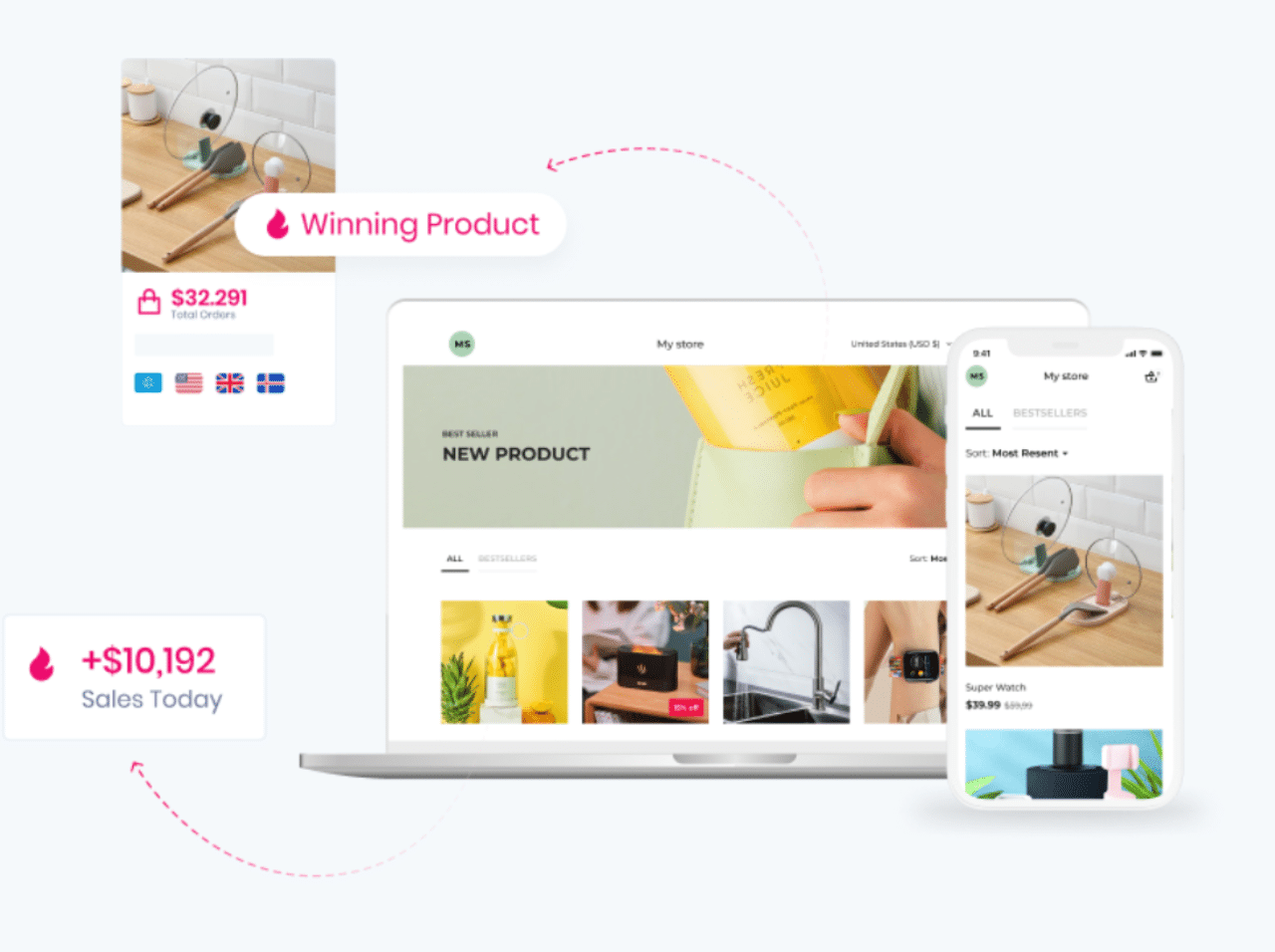AliExpress vs Temu for Dropshipping: What is the Better Choice?
Contents

Choosing between Temu and AliExpress can be a challenging decision. Both are popular for dropshipping. Both offer low prices and many products. But they work in very different ways.
Temu vs AliExpress isn’t just about price. It’s about shipping speed, supplier quality, and the ease of processing orders. One platform may help you grow faster. The other could cost you time and sales.
This guide breaks it down. You’ll see the key pros and cons of each, and learn which one fits your dropshipping store best.
Key Takeaways
- AliExpress offers more control, automation, and scaling potential for serious dropshippers.
- Temu focuses on fast delivery, simple ordering, and affordable pricing, but lacks advanced tools.
- Tools like Sell The Trend automate AliExpress dropshipping — from product import to order fulfillment.
- AliExpress has a wider supplier network and stronger product variety for global sellers.
- Temu is ideal for testing small batches; AliExpress is better for building long-term dropshipping brands.
Which Platform Is Better for Dropshipping?
The quick answer? It depends on what you want.
Are you just starting and looking for something simple? Or are you trying to build a long-term store that runs on automation, data, and control?
Temu gives you speed and simplicity. AliExpress gives you control, tools, and room to scale. They both work — but not for the same kind of seller.
Before we dive deeper, here’s a quick side-by-side look to help you spot the differences:
| Criteria | Temu | AliExpress |
|---|---|---|
| Ease for beginners | High | Moderate |
| Dropshipping automation support | None | Strong support via apps and tools |
| Control over branding/packages | None | You choose suppliers and packaging (where allowed) |
| Shipping speed consistency | More consistent in many locations | Varies by seller and method |
| Product variety | Limited | Very wide |
| Scaling potential | Low | High |
How Sell The Trend Helps You Scale with AliExpress

If you choose AliExpress for your dropshipping business, you’ll need tools that can save time and help you grow. One of the best options is Sell The Trend— a powerful platform built for AliExpress dropshippers.
Unlike Temu, AliExpress supports full automation. But you still need a tool to make it happen. Sell The Trend connects your AliExpress account to Shopify, WooCommerce, and other platforms. It handles everything from product research to order fulfillment.
Key features of Sell The Trend:
- One-click product import from AliExpress
- Automated order processing and tracking sync
- A powerful product research tool (NEXUS) to find trending items
- Analytics on pricing, sales potential, and supplier reliability
- Built-in video and ad copy generator
- Store intelligence tools to spy on competitor stores
If you’re serious about scaling a dropshipping store — not just testing a few items — using a tool like Sell The Trend is essential. It turns AliExpress into a fully automated backend, letting you focus on growth instead of manual tasks.
What Is Temu?
Temu is an online shopping platform owned by PDD Holdings, the same company behind Pinduoduo in China. It focuses on selling low‑cost products directly to buyers without third‑party sellers. Everything on Temu comes from its own controlled network of factories and suppliers.
How Dropshipping with Temu Works:
Temu isn’t built for dropshipping, but some sellers still try to use it. Here’s how it actually works:
- You list Temu products on your store manually.
- When someone buys, you place that same order on Temu with the buyer’s address.
- Temu ships the order directly to your customer.
That’s it — no automation, no APIs, and no dropshipping tools. You’ll need to track every order and handle customer updates yourself.
Pros of using Temu for dropshipping:
- Fast and consistent shipping (6–12 days to most countries)
- Low product prices and frequent discounts
- Simple order process — no need to talk to suppliers
- Great for testing product demand or one-off orders
- Easy refund and return system through the Temu app
Cons of using Temu for dropshipping:
- No dropshipping automation tools (DSers, API, or plugins)
- All order fulfillment must be done manually
- No control over branding or packaging — Temu’s name is on everything
- Cannot choose or change suppliers
- Limited product variety compared to full marketplaces
- Not scalable for high-volume stores or long-term growth
Temu’s strength is its fast shipping and low prices. But its weakness is control — you can’t automate, brand, or manage suppliers.
If you just want to test products or make small sales, Temu can work short‑term. For a real dropshipping business, though, it’s not yet ready to replace platforms like AliExpress.
What Is Aliexpress?
AliExpress is a global online marketplace owned by Alibaba Group. It connects buyers with thousands of sellers in China and other countries. You don’t buy from AliExpress itself — you buy from individual sellers listed on the platform.
That’s what makes it ideal for dropshipping. You can sell products on your own store, and when someone places an order, you buy that product from AliExpress. The seller then ships it directly to your customer.
How Dropshipping with AliExpress Works:
- Choose a product from any seller on AliExpress.
- Import it to your store using a tool like DSers, Sell The Trend, or Shopify plugins.
- Get an order, then automate the purchase on AliExpress.
- The seller ships the product to your customer.
- You keep the profit between your price and the AliExpress cost.
Pros of using AliExpress for dropshipping:
- Huge product variety in nearly every niche
- Works with automation tools (DSers, Sell The Trend, AutoDS)
- You can compare multiple sellers for the same product
- Option to negotiate with suppliers for better pricing
- Supports bulk order processing
- Flexible shipping methods (ePacket, Cainiao, DHL, etc.)
- Some sellers offer white-label packaging
- Great for scaling a store and managing high order volumes
Cons of using AliExpress for dropshipping:
- Shipping speeds can vary by seller (some slow, some fast)
- Quality depends on the supplier — requires research and testing
- Buyer protection policies depend on seller cooperation
- Some suppliers may run out of stock or raise prices suddenly
- Not all sellers support private label or branding
- Managing returns can be complicated in some cases
AliExpress gives you choice, control, and tools. It’s not always the fastest, but you can find suppliers with better shipping times. More importantly, you can scale your store, test products fast, and use plugins to manage everything.
That’s why AliExpress remains one of the top platforms for dropshipping worldwide.
Temu vs AliExpress: How Do Their Business Models Differ?
Temu and AliExpress may look similar from the outside. Both offer low-cost products, global shipping, and easy access for dropshippers. But their business models are completely different.
This difference affects how you fulfill orders, use tools, control branding, and grow your store. Let’s break down exactly how each platform works behind the scenes.
Here’s a quick overview:
| Feature | Temu | AliExpress |
|---|---|---|
| Platform Type | Direct seller — Temu controls listings and pricing | Open marketplace — many sellers compete for the product |
| Supplier Choice | Not available — no supplier visibility or switching | Full control — compare and choose suppliers |
| Automation | None — 100% manual ordering | Full automation with tools like Sell The Trend |
| Branding Options | Not customizable — Temu-branded only | Some sellers allow no-logo or custom-branded packaging |
| Fulfillment | Centralized — Temu handles all shipping | Seller-controlled — depends on shipping method and region |
| Scalability | Limited — no support for bulk or API-based orders | High — supports scaling through automation and supplier choice |
| Product Variety | Smaller, curated catalog | A vast catalog across thousands of categories and niches |
1. Sales Structure: Direct Seller vs Marketplace
1.1 Temu
Temu follows a centralized direct-to-consumer model. That means Temu itself is the seller — not a third-party merchant or factory. You’re buying directly from Temu’s own supply network, and every product is listed, priced, and fulfilled by Temu. This model is simple for the end user but limited for dropshippers.
You don’t get to choose which factory makes the product. If there’s a delay or issue, switching to a different supplier isn’t an option. And instead of comparing prices from multiple sellers, you’re limited to a single version listed by Temu. This model makes fulfillment more consistent, but gives you almost zero control.
In short:
- Temu owns or controls the entire supply chain.
- All products come from Temu’s internal system.
- You cannot contact or switch suppliers.
- One listing per product — no seller competition.
- Great for fast fulfillment, not for customization.
This model is best for buyers who want cheap prices and fast shipping — not for dropshippers trying to scale or brand their store.
1.2 AliExpress
AliExpress uses a marketplace model, like Amazon or eBay. It connects buyers to thousands of individual sellers. Each seller manages their own stock, pricing, and delivery process. That means when you browse a product, you’ll often find multiple listings for the same item — with different sellers offering different deals.
As a dropshipper, this gives you options. You can compare suppliers based on their feedback score, shipping speed, country of origin, or return policy. If one seller runs out of stock or raises prices, you can switch to another without changing your store’s product page.
Key benefits:
- Sellers compete, which can lower prices.
- You choose who to buy from and can message suppliers.
- Wide range of shipping methods and pricing.
- Some sellers specialize in working with dropshippers.
- Easier to test and switch suppliers for optimization.
If you’re building a serious dropshipping business, AliExpress gives you flexibility, backup options, and better long-term control. It’s not as “plug-and-play” as Temu, but it’s far more scalable.
2. Order Fulfillment: Manual vs Automated
2.1 Temu
Temu is not built for dropshipping. It has no tools, apps, or automation features designed for resellers. If you want to fulfill orders using Temu, you have to do everything manually. That means copying the buyer’s name, shipping address, and order details into the Temu checkout — every single time. If you receive 10, 20, or 100 orders in a day, you’ll need to do that 10, 20, or 100 times by hand.
Temu also does not offer bulk order processing or CSV uploads. You can’t link Temu to Shopify, WooCommerce, or any third-party platform. Every order lives inside Temu’s system. That may work for personal shopping, but it’s extremely inefficient for any kind of dropshipping business.
What this means:
- You must manually copy and paste customer orders.
- No Shopify, DSers, or API support.
- No way to track multiple orders in one place.
- No automation for shipping updates or tracking numbers.
- Order volume is limited by your own time and effort.
Temu may work for one-off orders or testing a few products. But if you want to scale, manual work becomes a roadblock fast.
2.2 AliExpress
AliExpress is one of the most dropshipping-friendly platforms available. It supports direct integration with many popular tools like DSers, Sell The Trend, Shopify, WooCommerce, and more. These tools allow you to import products, automate orders, sync tracking numbers, and even message suppliers — all without leaving your dashboard.
When a customer places an order in your store, the system automatically forwards the details to the AliExpress supplier. You can pay, track, and manage the order in just a few clicks. Some tools even let you process hundreds of orders at once.
This automation saves time, reduces errors, and lets you grow your business without hiring a full-time team.
Why this matters:
- You can fulfill orders in seconds, not minutes.
- Auto-sync shipping and tracking updates.
- Connects directly to Shopify and other platforms.
- Works with bulk ordering and CSV tools.
- Helps you manage 10, 100, or even 1,000 orders per day.
AliExpress offers the infrastructure you need to automate, grow, and scale. If your goal is to build a real business, this kind of backend support is essential.
3. Supplier and Product Control
3.1 Temu
Temu keeps things simple by taking full control over the supply side. That might sound good at first, but for dropshippers, it creates major limits. On Temu, you can’t choose your supplier. You can’t message the factory. You can’t compare different options for the same product. Temu decides who makes the item, how it’s packaged, and how it’s shipped. That might work for casual buyers, but not for sellers who want to grow.
If the product quality drops or if there’s a delay in shipping, you have no way to change the supplier. You’re stuck with whatever Temu provides.
Limitations to note:
- One product = one supplier (chosen by Temu).
- No contact with manufacturers.
- No way to compare quality or reviews across suppliers.
- No control over shipping methods or fulfillment location.
- If issues arise, you can’t switch suppliers — you must wait.
This lack of control makes Temu risky for long-term business use. You’re depending on a closed system, and you can’t adjust anything if problems come up.
3.2 AliExpress
AliExpress is a true marketplace. That means each product is listed by individual sellers — and often by dozens of different sellers. This gives you full control over who you work with, and how they fulfill your orders. You can filter by seller rating, shipping time, feedback, return policy, and more.
You can also message suppliers directly before placing an order. This lets you ask about bulk pricing, packaging, shipping upgrades, or order tracking. If one seller disappoints, you simply switch to another — no need to change your entire product page or listing.
What AliExpress offers:
- Dozens of supplier options for the same product.
- Freedom to compare reviews, prices, and delivery times.
- Option to test multiple sellers and find the best one.
- Direct messaging to negotiate or clarify details.
- Backup suppliers are ready if issues arise.
This control is essential for building a reliable store. You can optimize for faster delivery, better product quality, and higher customer satisfaction — all by choosing the right suppliers. With AliExpress, the power is in your hands.
4. Branding and Packaging Control
4.1 Temu
Temu does not offer any control over branding or packaging. Every order is shipped in Temu-branded packaging, often with the company’s logo printed on the bag or box. As a dropshipper, you can’t change this. You can’t remove the branding, include a custom thank-you card, or add your store’s logo anywhere.
This is a problem if you’re trying to build a serious business. When a customer receives a Temu-branded package, they assume they ordered from Temu — not from your store. That hurts your brand and makes repeat purchases less likely.
Key limitations:
- All packages are branded with Temu’s logo.
- No option to add inserts or marketing material.
- No control over how the product is wrapped or presented.
- Your brand is invisible to the customer.
- Looks like a Temu purchase, not a branded experience.
If your goal is long-term growth, Temu’s packaging makes it hard to stand out or build loyalty.
4.2 AliExpress
AliExpress doesn’t offer full branding by default, but it gives you options — especially if you build good relationships with sellers. Some suppliers offer plain, no-logo packaging. Others allow you to add custom inserts, stickers, or even printed boxes if you’re ordering in larger quantities.
This means you can remove all third-party branding and make the product feel like it came from your store. While not all sellers offer this, many do — especially in niches like beauty, tech accessories, and home goods.
What’s possible with AliExpress:
- Request plain or no-logo packaging.
- Add your store’s branding (inserts, stickers, thank-you cards).
- Offer a more premium, personalized customer experience.
- Build a private-label brand with the right supplier.
- Encourage repeat buyers by making your packaging memorable.
If you’re planning to create a real dropshipping brand — not just a quick store — this control is essential. AliExpress gives you room to grow, test, and improve the unboxing experience, something Temu simply doesn’t allow.
Temu VS Aliexpress: FAQs
1. Is AliExpress better than Temu?
It depends on what you’re looking for. AliExpress has many sellers offering dropshipping functionalities and a wide product selection across various categories. It’s better suited for e commerce businesses that want control, automation, and scaling tools.
Temu, on the other hand, focuses on affordable products, faster delivery times, and free standard shipping. If your goal is long-term growth, AliExpress is the go to option for reliable dropshipping methods and flexibility.
2. Is Temu owned by AliExpress?
No. Temu and AliExpress are competitors. Temu’s focus is on direct-to-consumer sales through PDD Holdings, while AliExpress is part of Alibaba Group. The AliExpress Temu comparison often comes up because both platforms target global buyers and international buyers with affordable prices and competitive pricing, but they operate under different parent companies and business structures.
3. Why are Temu and AliExpress so cheap?
Both platforms source directly from manufacturers, cutting out middlemen. This lowers product costs and allows heavy discounts and flash sales. Temu offers extra savings through current promotions, aggressive discounts, and the best deals budget budget-conscious shoppers.
Meanwhile, AliExpress benefits from various sellers competing on pricing points depending on order size, location, and demand. Their shared model attracts commerce businesses seeking affordable prices and volume.
4. What is the US equivalent of AliExpress?
The closest US equivalent is Amazon, but with different priorities. Amazon focuses on fast shipping and quality control, while AliExpress offers a vast selection of trending products and customization options for small e-commerce businesses. Temu is a fast-growing online marketplace in the same direction, offering affordable products and reliable shipping, but Amazon still leads in local fulfillment and faster delivery times for US shoppers.
5. Who is better than Temu?
That depends on your needs. If you want orders delivered faster and more control over product selection, AliExpress or even Amazon are stronger choices. They provide expedited options, various sellers, and stronger services for managing inventory.
Temu is newer and focuses on affordable prices and beauty products, but for long-term dropshipping, choose Temu only for testing, not scaling. Platforms with an official dropshipping program are better for commerce businesses.
6. Is Temu safe to order from?
Yes, Temu is safe for most global buyers. It uses secure payment options such as Apple Pay, Google Pay, Cash App Pay, debit cards, and bank transfers. It also offers reliable shipping and refund protection if something goes wrong.
However, Temu depends on its internal system for shipping options, so you have less control than with AliExpress. Still, for budget-conscious shoppers, it’s a trusted site with affordable prices and a vast product selection across consumer electronics and more.
Conclusion
Temu is simple and fast, but AliExpress gives more control and room to grow. For scaling and better supplier access, AliExpress is the stronger choice. Focus on comparison shopping to find high-demand items and secure the best deals for your dropshipping store.








